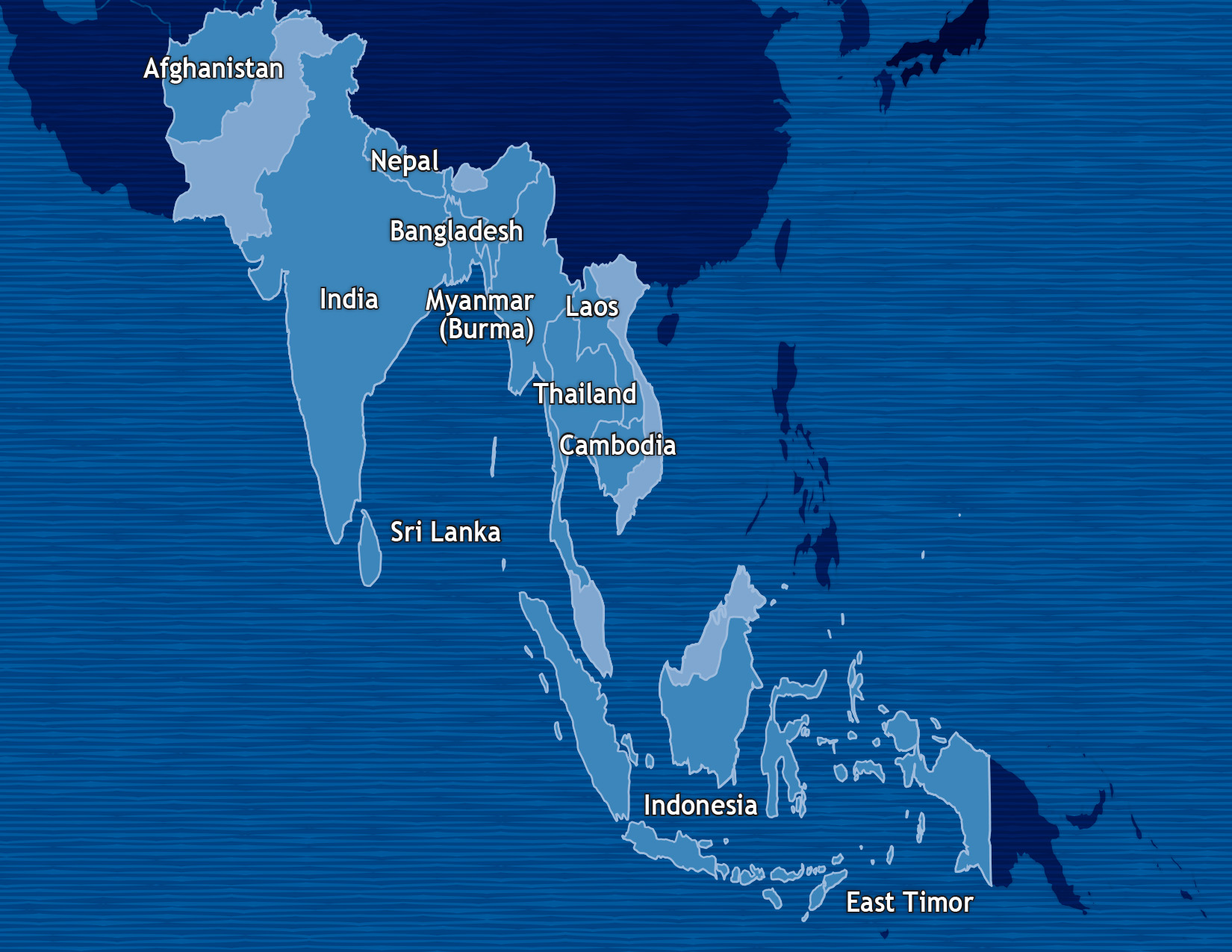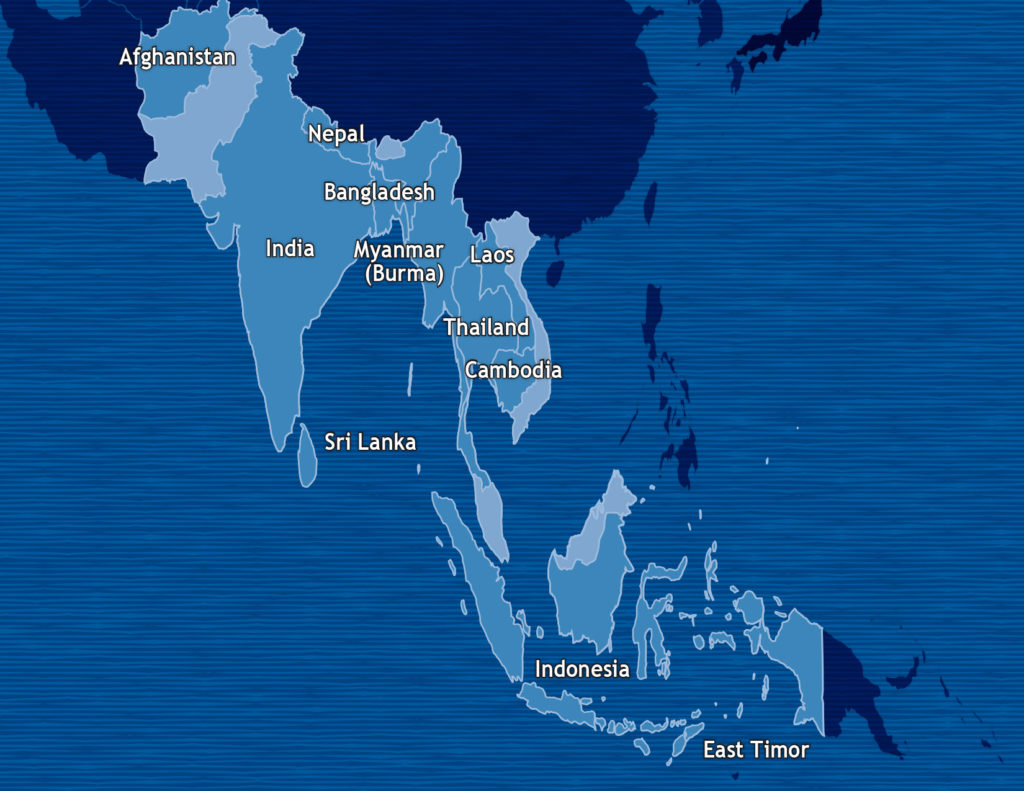Advocacy Contexto: Climate Change in Southern Asia

Sara[1] lives in a small, impoverished village in Bangladesh. Her village is in the southern part of Bangladesh and lies right on the coast of the Bay of Bengal. Sara’s family has lived there for generations, farming and fishing. Her husband and eldest son work as day laborers on a fishing boat while she farms their small plot of land and her two younger sons attend school. Two years ago, there was a strong typhoon that destroyed the embankment that was protecting their village from the daily tides.
The local government rebuilt the embankment, but they rebuilt it further inland, leaving Sara’s village outside the embankment and vulnerable to the high tides. The village moved to higher ground outside the embankment, so their homes wouldn’t be flooded with the twice-daily floods. However, the land that all the villagers used to farm is now flooded twice a day with saltwater and can no longer grow crops. Sara now must buy vegetables from the market with the little money her husband and son earn from their work on the fishing boat.
The local government has promised to relocate the village to land inside the embankment, but so far they have not done so. The houses built after the typhoon are temporary and won’t stand up to another strong typhoon, which are becoming more and more frequent. They will then have to spend their meager savings on rebuilding their house instead of buying food or sending her younger children to school.
Sara’s family is one of the poorest of the poor around the world. Her family used to be able to survive from what they were able to grow and fish. Now, with no land on which she can grow food, her family is at a high risk for starvation and malnutrition and vulnerable to the whims of the weather.
The past decade was the hottest on record. Weather events like hurricanes and typhoons are becoming more severe. Droughts and wildfires are destroying whole animal species along with killing people and destroying homes. Sea levels are rising and threatening island communities with displacement.
Climate change is affecting the entire world but most acutely affecting the most vulnerable people and communities. Those most affected by climate change are the ones who contributed the least to the problem and are the ones who have the fewest resources to adapt. As sea levels rise, saltwater is leeching into aquifers and onto arable land and islands are disappearing. Strong storms bring destructive winds that destroy structures and erode coastal lands.
The scientific community has determined that we are reaching a point of no return. We can’t go back to the way things used to be; we can only prevent them from getting worse if we act now. However, political will is lacking in most developed countries around the world, including in the United States. What would it look like if we took climate change as seriously as we are taking this global COVID-19 pandemic?
[1] Name changed to protect her identity
Discussion Questions
- What would you do if your family was in a similar situation to Sara’s family?
- How do you see the impacts of climate change on your life?
- What small changes can you make in your daily life to address climate change and support people like Sara who are affected by the impacts of climate change?
- What can the response to COVID-19 teach us about how we might respond to the climate crisis?
Learn
Dive deeper into this issue by watching our video Bible study on climate change.
Pray
Pray with global partners working on climate change adaptation, mitigation, and advocacy.
Read the Bible Study, “The Tree of Life” by Aruna Gnanadason, a member of the Church of South of India.
Advocate
You can help fight climate change locally, in your state, nationally, and globally. Support state and federal laws that will encourage factories, plants, and other large emitters to reduce their emissions. Support the Paris Climate Accord. Encourage your banking institution and/or investment broker to stop investing money in the fossil fuel industry and other large industrial emitters.
Give
Partners in Southern Asia are building more sustainable communities in the face of climate change.
The Christian Commission for Development in Bangladesh (CCDB)’s Enhancing Climate Change Resilience project is researching and training farmers in innovative and efficient uses of climate adaptation and mitigation techniques and technologies.

